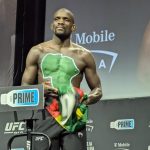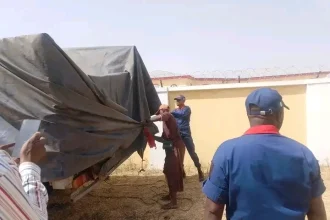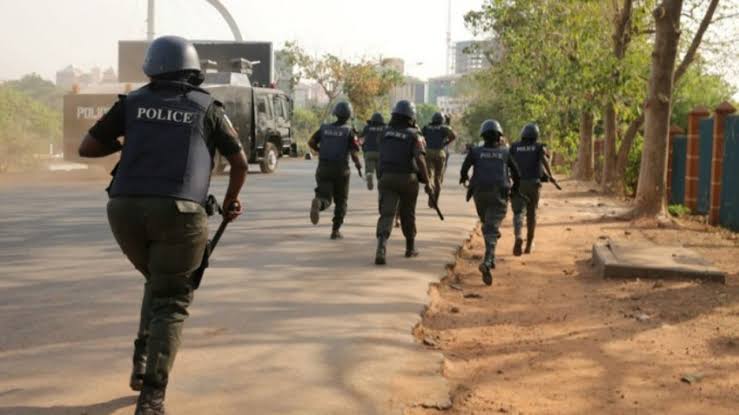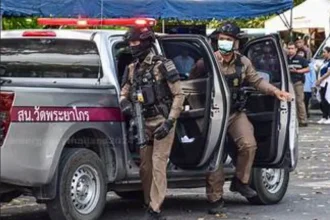Former world boxing champion and son of Mexican boxing legend Julio César Chávez Sr., Julio César Chávez Jr., has been arrested in the United States over visa violations and alleged immigration fraud, according to federal authorities.
The arrest, which comes days after Chávez Jr.’s high-profile defeat to Jake Paul in Anaheim, California, has drawn national attention due to the boxer’s notoriety and connections to prominent individuals.
The U.S. Department of Homeland Security revealed on Thursday that Chávez was detained for overstaying his tourist visa and for allegedly submitting false information in his application for permanent residency.
Authorities initially planned to arrest the 39-year-old on June 27, just one day before his fight with Paul, but delayed enforcement for undisclosed reasons.
Chávez was ultimately taken into custody on Wednesday while riding a scooter in front of a residence in Los Angeles’ upscale Studio City neighborhood, according to his attorney, Michael Goldstein.
“The current allegations are outrageous and simply another headline to terrorize the community,” Goldstein said.
The arrest has amplified growing tensions in Southern California, where recent weeks have seen a surge in immigration-related detentions. Demonstrations have erupted in several areas, and federal personnel, including members of the National Guard and Marines, have been deployed to downtown Los Angeles.
As of Thursday morning, Goldstein said Chávez’s location remained unknown. The boxer is also scheduled to appear in court on Monday in a separate case involving illegal gun possession.
In a statement shared with the Los Angeles Times, the Chávez family expressed support for the boxer:
“We have full confidence in his innocence. We firmly believe that the proper course is to allow the competent authorities to carry out their work without external pressure or speculation.”
Chávez Jr., who had only one professional bout between 2021 and his recent fight, has seen his career overshadowed by controversy and comparisons to his father, a multi-division world champion and member of the International Boxing Hall of Fame.
The younger Chávez has publicly battled substance abuse issues and has faced multiple legal challenges. In 2012, he was convicted of driving under the influence in Los Angeles and sentenced to 13 days in jail.
In January 2024, Chávez was arrested for possessing two AR-style ghost guns. He was released on $50,000 bail and entered a residential drug rehabilitation program.
U.S. Immigration and Customs Enforcement confirmed that Chávez entered the country on a tourist visa in August 2023, which expired in February 2024. Despite this, he stayed in the U.S. and applied for permanent residency on April 2, citing his marriage to U.S. citizen Frida Muñoz, who is reportedly connected to the family of imprisoned cartel leader Joaquin “El Chapo” Guzmán.
Federal authorities allege that Chávez included false information in his residency application and have linked him to the Sinaloa Cartel. In a December 17 internal alert, the Department of Homeland Security labeled Chávez “an egregious public safety threat” and criticized the Biden administration for permitting him reentry into the U.S. on January 4, despite an expired visa.
Meanwhile, the Mexican Attorney General’s Office disclosed Thursday that it issued an arrest warrant for Chávez in March 2023 as part of an investigation into organized crime and arms trafficking. Mexico has formally requested Chávez’s extradition.
A U.S. federal agent told the Associated Press that “Julio C” mentioned in official documents refers to Chávez, although the agent did not comment on why Chávez was not detained during his numerous trips to Mexico.
The development has divided public opinion in Mexico. Some citizens view the arrest as politically motivated.
“I think that the U.S. government — in this case, Trump — is up to something,” said Martín Sandoval Peñaloza, a newspaper vendor in Mexico City. “To attract media attention.”
Others believe Chávez’s personal history made the situation inevitable.
“I think it was predictable because he has had a lifetime of drug use,” said storekeeper Oscar Tienda.
Despite his off-ring struggles, Chávez captured the WBC middleweight title in 2011 and successfully defended it three times. He faced top-tier opponents like Canelo Álvarez and Sergio Martinez, although he lost both bouts.
Ahead of the Jake Paul fight, Chávez claimed to be sober and looked to be in peak physical condition.
“There are a lot of good people, and you’re giving the community an example of violence,” Chávez told the Los Angeles Times before the bout. “After everything that’s happened, I wouldn’t want to be deported.”











